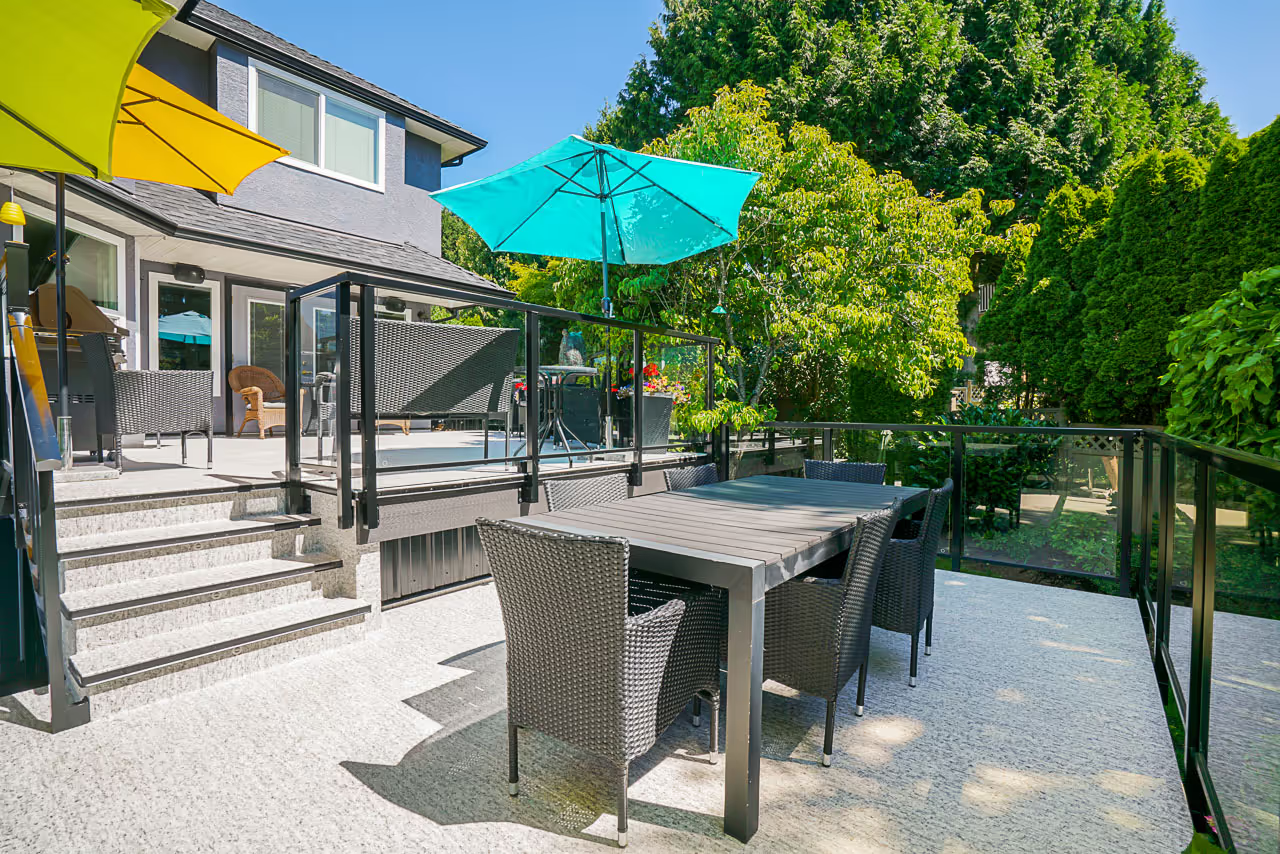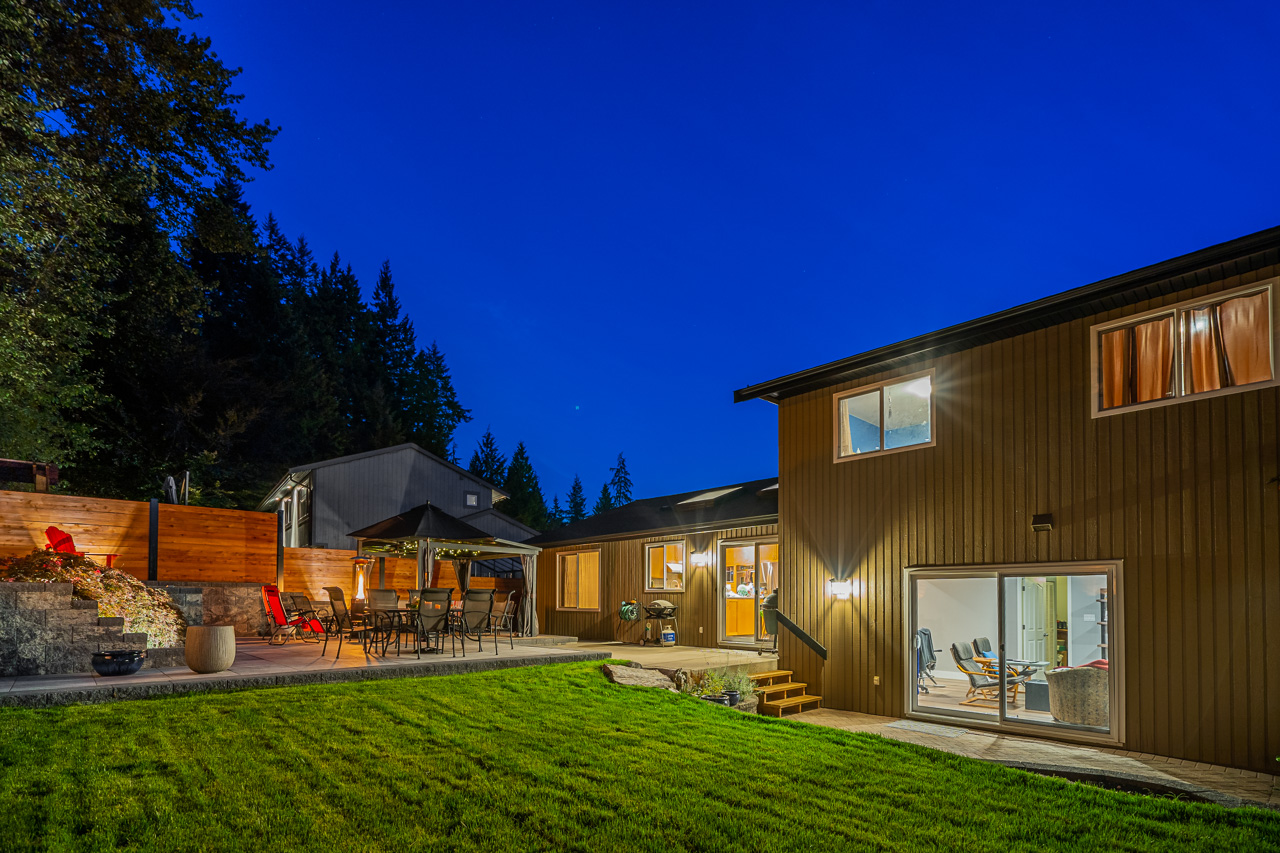June 19, 2025
Composite vs Wood deck: Which is the best?
.jpg)
If you're dreaming of the perfect backyard deck, choosing the right material is crucial. The debate of composite vs wood deck isn't new, but with modern advancements and sustainability trends, it’s more relevant than ever.
Homeowners in Langley and Vancouver often ask: Which decking material is more cost-effective? Which one lasts longer? And most importantly, which is best for my lifestyle?
Let’s break it all down so you can make an informed choice—and we'll even show you how Markley Construction can bring your dream deck to life.
What is Composite Decking?

Composite decking is a man-made product, typically composed of recycled plastics and wood fibers. It's designed to mimic the look of natural wood while offering enhanced durability and low maintenance.
Types of Composite Decking:
- Capped Composite: A core of wood-plastic composite wrapped in a protective shell.
- PVC Decking: 100% plastic—no wood at all.
This material is engineered to resist rot, warping, and splintering, which makes it ideal for our rainy coastal climates.
What is Wood Decking?

Traditional wood decking remains popular for its natural beauty, warmth, and classic appearance.
Common Wood Types:
- Pressure-Treated Lumber: Affordable and treated to resist insects and rot.
- Cedar: Naturally resistant to decay with a rich appearance.
- Hardwoods : Durable but pricey, often used in premium builds.
Wood decks require more maintenance to maintain their beauty but can be refinished or stained for a fresh look.
Read Also: Deck Vs Patio - Understanding the Differences
Composite Decking vs Wood Cost
Initial costs for wood are lower. However, over time, composite decking vs wood cost tells a different story.
Composite may seem expensive upfront, but it pays off long-term—especially when you consider stain, sealant, and repair costs with wood.
Maintenance Comparison: Which Requires the Least Maintenance?
- Wood: Needs annual sealing, staining, and cleaning. Can crack or warp without attention.
Composite: Just soap, water, and a hose. It doesn’t need painting or staining—ever.
Winner? Composite decking by far.
Read Also: Simple and Effective Ideas to Remodel the Outside of your House
What is the Downside of Composite Decking?
Despite the benefits, composite isn't perfect:
- Heat Retention: Gets hot in direct sun.
- Scratches & Fading: Cheaper brands may discolor over time.
- Cost: Higher upfront investment.
Still, many find these drawbacks minimal compared to its overall convenience and longevity.
Which is Better: Treated Wood or Composite Decking?

Treated Wood Pros:
- Lower initial cost
- Easy to repair or replace boards
Composite Pros:
- No splinters or rot
- Doesn’t attract termites
- No chemical treatments needed
For busy homeowners, composite is the modern choice. If you love DIY and frequent refinishing, wood might suit you.
Durability and Lifespan
Composite decking often lasts 2-3 times longer than wood, making it ideal for wet climates like Vancouver and Langley.
- Wood: 10–20 years with maintenance
- Composite: 25–50 years with minimal care
Visual Appeal and Customization
Wood is naturally beautiful with unique grains, while composite offers consistency and style flexibility.
- Wood: Earthy, traditional, can be stained
- Composite: Wide range of colors, faux wood textures
Environmental Considerations
Composite decking uses recycled materials, reducing landfill waste. Meanwhile, responsibly sourced wood can be a renewable option, but it often requires chemical treatments.
Safety and Comfort Underfoot
- Wood: Can splinter and become slippery when wet.
- Composite: Designed for better grip and is splinter-free.
Installation Process and Complexity
Wood is easier for DIY projects, but composite often requires special fasteners and cutting tools.
Hiring decking professionals like Markley Construction ensures perfect installation either way.
Table of Differences Between Composite and Wood
Why Choose Markley Construction for Your Decking Project?
Whether you're drawn to the natural beauty of wood or the low-maintenance appeal of composite, our expert deck builders in Langley and Vancouver are here to bring your vision to life. We begin by understanding your needs and deliver custom, long-lasting decks built for everyday living and lasting impressions.
- Expert design consultations
- Premium, weather-resistant materials
- Local expertise you can trust
- Clean, efficient installation
Contact us today to get started with your outdoor project. Your perfect outdoor space is just a click away.
FAQs
1. Which requires less maintenance?
Composite decking requires far less maintenance than wood.
2. What is the cost difference?
Composite has a higher initial cost but saves money over time.
3. What is the downside of composite decking?
It can get hot in sun, may scratch, and costs more initially.
4. Which lasts longer?
Composite decking can last 2–3 times longer than wood.
5. Which looks more natural?
Wood decking has a natural grain and classic look.
6. Can composite decking be repaired?
Minor scratches can be sanded; severe damage might need board replacement.
Which Decking Material Should You Choose?
If you value aesthetics, cost-efficiency, and love DIY, wood might be for you. But if you're looking for long-term value, low maintenance, and durability, composite is a smarter investment—especially in Canada’s wet climate. Let Markley Construction bring your decking vision to life. Whether you want cozy cedar or futuristic composite, your dream deck is just a call away.
Need Your Project Constructed Efficiently, Quickly & Up To Code?
With a proven track record of transforming spaces for over two decades, we take pride in our commitment, quality workmanship and excellent service as the home renovation contractor.


